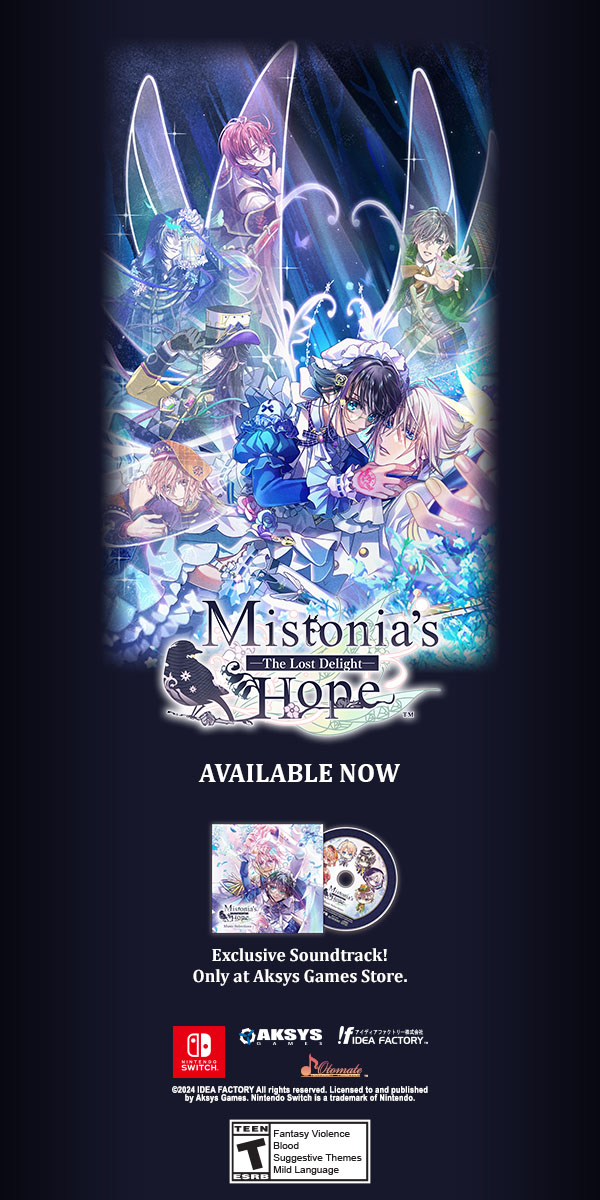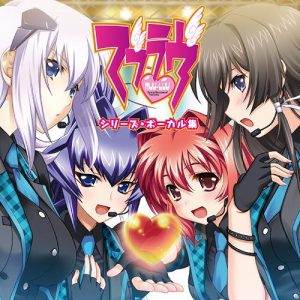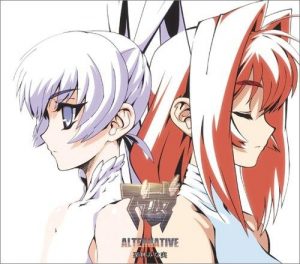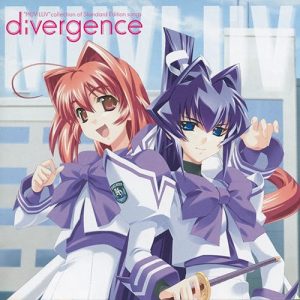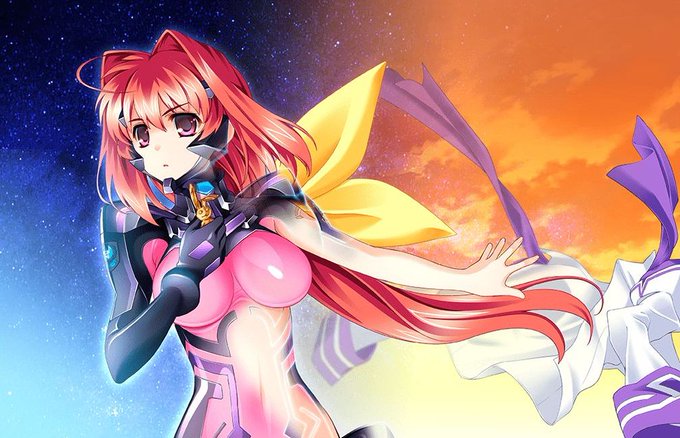
Extra and Unlimited seem innocuous, setting up your expectations with a streamlined reading. However, Alternative creates a new relationship, a metaphorical and literal connection to its past. Alternative moves wary of its ghosts. As it progresses, it looks behind its shoulder, revealing a road paved towards its future.
By way of self-reference, Alternative subverts your understanding of the trilogy, creating depth where it was absent before. Just as Alternative borrows from its previous stories, Alternative gives back, boldly elevating Extra and Unlimited as criticisms of its protagonist/genre while giving introspection, a look into ourselves.
In the previous article, we discussed Muv-Luv’s historical connections. For this article, we will discuss how knowledge of Alternative reveals the intentions of its preceding stories. By contextualizing Extra and Unlimited, we can approach the topic of our next article, the cyclical nature of Alternative.
The Value of Intertextuality
Muv-Luv layers its meaning through intertextuality: the relationship between texts. In mediums other than literature, the “text” refers to the contents of the story. In this section, we’ll discuss the two types of intertextuality: direct and indirect.
Direct intertextuality is when a piece of media makes an explicit reference to another. One example is in the movie Deadpool 2. In the movie, its titular character re-enacts a scene using two dolls: a doll of Deadpool dressed as an iconic sheriff and a doll of Cable, the presumed antagonist of the movie. Deadpool moves the sheriff doll and says, “Reach for the sky!” a direct quotation of Woody from Toy Story 2.
Indirect intertextuality assumes that creators will be inspired or influenced by their contact with other media. This results in creators invoking a history of other works, even if they are not explicit. For example, imagine a post-apocalyptic story that takes place in a desert with scavenging outlaws. If you thought of Fist of the North Star (or Mad Max), there is a good reason. The mangaka of Fist of the North Star, Tetsuo Hara, stated that one of his inspirations was the movie Mad Max 2.
By using references, intertextuality helps prime an audience with ideas. By borrowing from these ideas, creators can make use of them to help convey their story.
The Importance of Extra: Giving Context and Allowing Critique
Before we examine Alternative, I will have to contextualize Extra. During a player’s first playthrough, Extra’s story will seem like a dime-a-dozen. However, once players experience Unlimited and Alternative, they will see how the authors use intertextuality to critique eroge conventions.
As discussed in the first article, Takeru isn’t the focus of Extra’s story. Although the story centers around Takeru, much of the story focuses on the heroines. Its development follows conventional story beats: Takeru’s childhood promise (marriage), the thematic emphasis on choice (responding to a heroine’s feelings), and the romantic response, a sign of true love: kissing under a tree.
Takeru is a reactive character, driven by the plot. He receives the attention and adoration of the cast, but he hasn’t earned it. His “specialness” is assigned to him, not a quality he has made or earned.
To address this, these types of stories need to justify their protagonist. They need to make their characters change from reactive to proactive, prove commitment through action. By doing so, love feels earned, not given. Takeru has not yet earned love. This is one of the major critiques that is addressed and developed in the trilogy.
Takeru’s mirrors his eroge predecessors in one way; his life is filled with conveniences. His lack of parental figures allows him certain freedoms. His status as the main character means the story and cast revolve around him. “His choices” are made for him—we, as players, make his choices: from the girl he adores to the progression of his words. All done with a simple click.
That’s not to say Takeru doesn’t have some autonomy, but he acts within the path we set for him. His actions are either framed by us or subverted by his stereotypical role.
During the Lacrosse match, he convinces the heroines to put aside their differences. He does so with an arduous “speech,” criticizing them for their shortcomings.
The problem: he speaks down to them, not with them. A speech is not a discussion, and a speech is not a dialogue. It is aimed towards an audience; it’s one direction. His speech is a lecture, an action that assumes insight and moral clarity. Takeru is no Yuuhi. He doesn’t understand his own situation much less another’s. He is naive, young, and flawed, but Extra’s story doesn’t explicitly criticize this. We’re meant to.
Another problem arises when you dive deeper. One of the most important decisions can be stripped away from Takeru—his own decision to love Sumika or Meiya. As love rivals, their routes share the same path, their stories intertwined. Normally, players will accumulate points favoring one heroine over the other, and at the end, Takeru decides to pursue either Sumika or Meiya. However, if you perfectly balance Sumika and Meiya’s affection throughout their route, Takeru isn’t given a decision at the end.
You are.
By “gaming” the system, you can ignore the core message of romance. You can ignore Yuuko and Marimo’s lecture about the importance of choice and sincerely responding to a character’s feelings. You can tarnish the entire idea of true love by saving and reloading choices, vying for every character’s affection—even though their true love is one person. You can experience these romance stories never knowing true love, just some fantasy of it.
Saving and reloading is normal and expected. It’s logical to want to experience every character’s story, and receive the full experience. It’s economical, the most “bang for your buck.” But most importantly, it’s conventional. These types of stories are designed this way. These games won’t stop you from using its mechanics. However, by bringing this to our attention, we start to see hypocrisy.
“Save in the name of True Love” feels like a lie.
The Importance of Unlimited: Call to Duty and Character Development
Thematically, Unlimited is a story about transitions. It is the midway point between Extra’s comforting fantasy and Alternative’s cold reality. It is the beginning of Takeru’s development and the restriction of the player choices. It is the start of Takeru’s world view being challenged.
At the start of Unlimited, we’re thrust into a shocking scene. The formerly vibrant town is destroyed. By pure chance, Takeru’s house is left standing, but Sumika’s house is ruined, destroyed by a mech that crashed into it.
Instead of focusing on Sumika’s safety, Takeru is overjoyed by seeing a mech. His fantasy of being a pilot stoked by its existence. At this point, Takeru still believes Unlimited is a dream, and while it’s understandable his concern for others is held back by this belief, his escapist mentality—the same mindset he learned in Extra—continues into a dangerous new setting.
This is Unlimited, the first time we really see Takeru’s personality. His personality is childish and selfish, a fact that separates him from other cadets. For this story, he’s now the focus. Whereas the heroines have adjusted to war, their past consumed by conflict, Takeru barely recognizes it. Whereas Extra wants to emphasize choice, Unlimited wants to start taking it away.
In a standard Hero’s Journey, a common structure for a story, the hero begins by being reactive to the events around him. It is when events can no longer be ignored—when the “call to action” is so loud—that the hero must answer its beckoning. Answering this call is what transforms a character from being pushed by the story to one who moves it.
During Unlimited, Takeru is not yet ready. His “specialness” is questioned; his failure is at every turn. It is only when he becomes a pilot that his “specialness” allows him to lead others, his chance given to him on a platter. However, even with this “Extra convenience,” he fails to summon the courage. He cannot fight the BETA as he is.
Analyzing Extra is limited, but when given a frame of reference, its meaning expands. Unlimited provides that reference, forcing Takeru to expose his identity by withholding choice. That’s not to say choice doesn’t exist within Unlimited—you, the player, make choices—but that’s the tragedy. For Takeru to change from reactive to proactive, for him to grow as a character, he can’t have you. He must be forced to make his decisions.
Final Thoughts
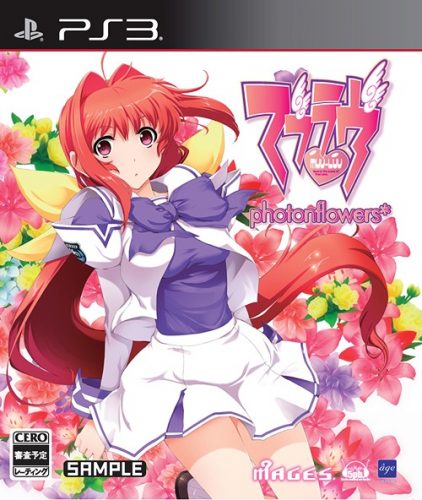
With both stories contextualized, the next article will focus on Alternative and its cyclical nature. By understanding history, context, and intertextuality, subject of this and the previous articles, I hope to reveal how Muv-Luv became the classic it is today.
Recommended Post
A Retrospective Reading: Muv-Luv in 2019 Part 1
Recommended Post
A Retrospective Reading: Muv-Luv in 2019 Part 2
Recommended Post
A Retrospective Reading: Muv-Luv in 2019 Part 3
Recommended Post
